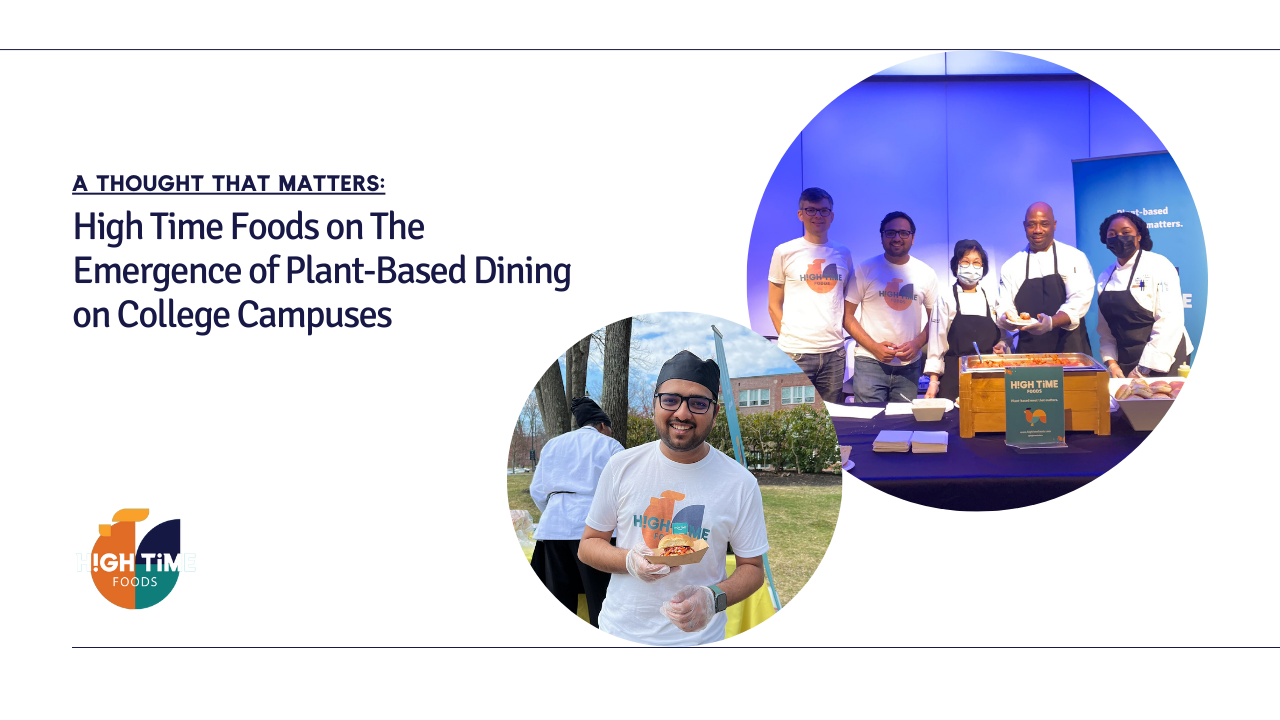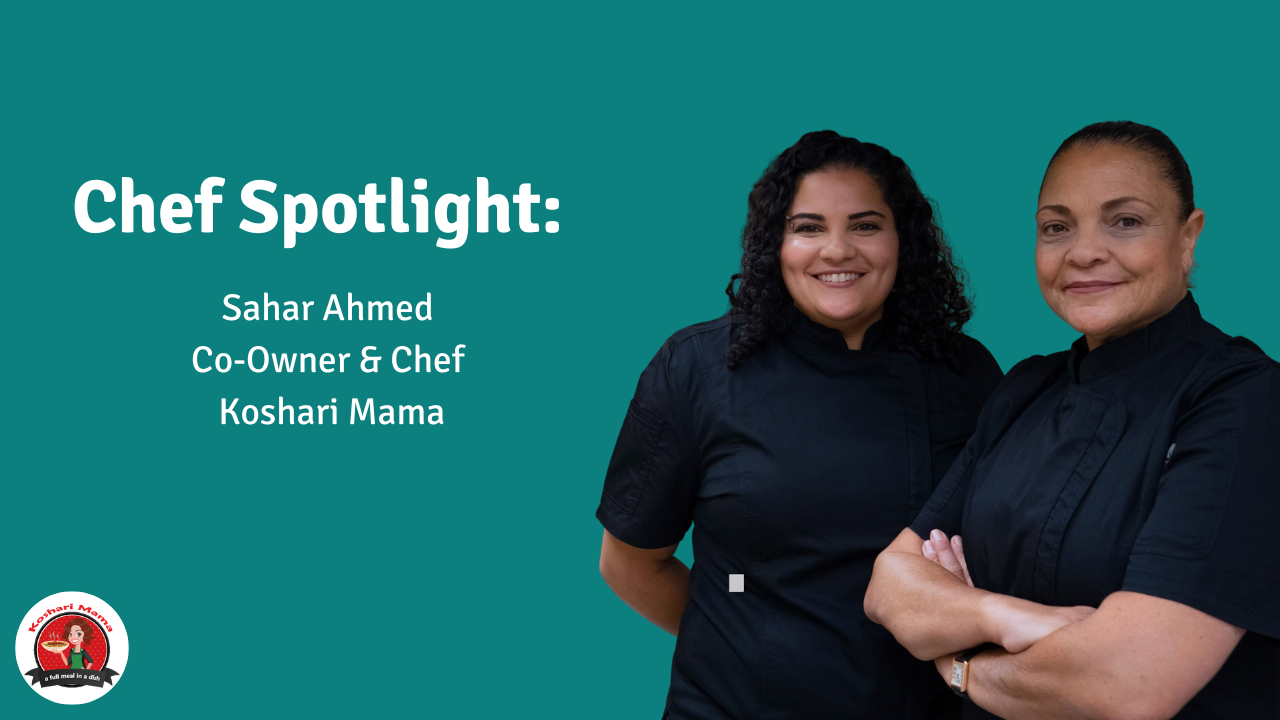
Why College Dining Halls Are Adding More Plant-Based Dishes
Recently, there has been a significant change in the dietary preferences of college students, with a rising number of young adults actively looking for plant-based dishes. This trend reflects a growing awareness and concern for health, sustainability, and ethical considerations. A study conducted by Sodexo shows that 81% of college students chose a plant-based meal over meat when it is being served at dining halls. It has been proven that offering a wider variety of vegetarian meal options at the dining hall leads to a significant increase in vegetarian meal sales from 41% to 79%. Let’s explore the various factors why college dining halls are now adding more plant-based dishes to the students.
Health: College students are increasingly interested in reducing their meat consumption due to the awareness of health and wellness. They recognize the potential benefits of plant-based diets, including reduced risk of chronic diseases, improved digestion, and better weight management. The availability of plant-based meat alternatives further facilitates their dietary choices, offering healthier options for those seeking a more wholesome lifestyle. Plant-based meats are also proven to contain more fiber, less fat, and fewer calories. Aramark’s research revealed that 65% of Gen Z respondents are drawn to plant-based dishes and 79% of them expressed a willingness to embrace meatless options for one to two times a week, motivated by their health-conscious mindset.
Ethical Considerations: More college students, especially Gen Z, are choosing vegetarian dishes due to ethical reasons. Gen Z is the most diverse generation, with students from different backgrounds like Asian, Latin, and Indian, seeking authentic and culturally relevant plant-based food options. Given the growing emphasis on diversity, equity, and inclusion (DEI) in colleges across the USA, providing diverse meal options on campus becomes an essential necessity.
Environmental: Environmental consciousness is a significant driving force behind college students’ decision to pick plant-based dishes. 77% of Gen-Z agree that they care about environmental sustainability as a value and 62% willing to spend more on products that don’t harm the environment. According to Education Dive, over 140 universities, such as Tulane, Johns Hopkins, and Columbia University, have implemented “Meatless Monday” programs. Additionally, institutions like New York University, University of Pittsburgh, and Harvard, among many others, have joined the Cool Food Pledge to reduce greenhouse gas emissions linked to food by offering eco-friendly menu options. This shows that colleges and universities are taking note of the rising demand for plant-based options among their student populations. By doing so, they are fostering a more sustainable and compassionate community.
Taste and Variety: Advancements in plant-based meat technology have revolutionized its applications in cuisine. For example, our product is shelf-stable and versatile, making it perfect for creating various dishes that spark interest and intrigue, such as deep-fried plant-based chicken, quesadilla, pad kra pao, plant-based burger, and tacos. This creativity has been proven at Yale Hospitality, where 80% of the dishes they serve are plant-based. Additionally, 150 Aramark chefs from college campuses in the United States and Canada did plant-based culinary training with the Humane Society of the United States (HSUS) to introduce more innovative recipes around plant-based ingredients. These efforts aim to provide delicious and diverse plant-based choices for students to explore and embrace the diverse world of plant-based cuisine.
Social Influence: Social influence and peer support play a significant role in college students’ dietary decisions. Plant-based products have become a trendy lifestyle choice among young adults, amplified by social media and positive experiences shared among friends. As students observe their peers adopting plant-based diets, they become more open to trying it themselves. After introducing their vegan dining hall, the University of North Texas has experienced an increase in foot traffic, ranging from 10% to 15%. This influence also extends to major food service providers like Sodexo and Aramark, who have set targets for a significant portion of their menu items to be plant-based by 2025. Sodexo aims for 42% of its menu items to be plant-based, while Aramark plans to have 44% of offerings in residential dining based on plants by the same year.
Accessibility and Convenience: Lastly, The increasing availability of plant-based meat in grocery stores, restaurants, and on-campus eateries has made adopting a plant-based lifestyle more accessible and convenient for college students. The ease of finding quick, delicious, and satisfying plant-based meals on campus eliminates barriers and empowers students to maintain a plant-based meal more effortlessly. With 79% of Gen Zers expressing their willingness to go meatless for one or two days a week, the demand for serving plant-based dishes in college dining halls undoubtedly exists.
In conclusion, as more Gen Z consumers favor plant-based foods, it becomes vital for colleges to provide a wide variety of inclusive meals that cater to their preferences. Because when students choose their universities, they consider not only academic standards but also how the dining options align with their personal values. By embracing this positive trend and offering diverse plant-based choices, universities can better connect with their students’ values and aspirations.
In response to the growing trend and our commitment to a sustainable food business, we are thrilled to partner with colleges like Emerson and Babson, aiming to provide more accessible and nutritious plant-based options on their campuses. Together, let’s make the world greener and healthier! 🌱🌍
Sources:
College Pulse. (n.d.). College Students and the Vegetarian/Vegan Food Diet. Retrieved from https://collegepulse.com/blog/college-students-vegetarian-vegan-food-diet
Vegconomist. (n.d.). College Students Plant-Based by Default. Retrieved from https://vegconomist.com/studies-and-numbers/college-students-plant-based-default
Ruby, M. B., Heine, S. J., Kamble, S., Cheng, T. K., & Waddar, M. (2019). Compassion and contamination. Proceedings of the National Academy of Sciences, 116(41), 20339-20344. https://doi.org/10.1073/pnas.1907207116
Green Queen. (n.d.). Is Plant-Based Meat Healthy or Not? Retrieved from https://www.greenqueen.com.hk/is-plant-based-meat-healthy-or-not
Food Institute. (n.d.). Q&A: Plant-Based Menu Innovations College Students Love. Retrieved from https://foodinstitute.com/focus/qa-plant-based-menu-innovations-college-students-love
Insights White Paper. (2019). Retrieved from https://assets.ctfassets.net/hhv516v5f7sj/6g6wlcEOwtQAgCmx9rDMpH/879dc7c7f8402e823ca50d4374b8e3b6/062619_Insights_White_Paper.pdf
Impossible Foods. (n.d.). 3 Reasons Why Colleges and Universities Should Put Plant-Based Foods on the Menu. Retrieved from https://impossiblefoods.com/blog/3-reasons-why-colleges-and-universities-should-put-plant-based-foods-on-the-menu
Yale Hospitality. (n.d.). Note from Chef James. Retrieved from https://hospitality.yale.edu/eat-well/note-chef-james
FoodService Director. (n.d.). 6 Trends Currently Shaping College Dining. Retrieved from https://www.foodservicedirector.com/operations/6-trends-currently-shaping-college-dining
Aramark. (2018). Back to School 2018. Retrieved from https://www.aramark.com/newsroom/news/back-to-school-2018




